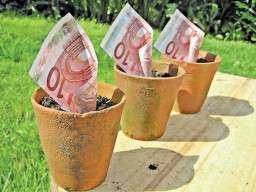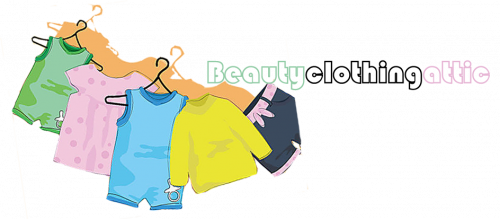
In perhaps the most followed interpretation of sustainability…, the University of Michigan defined true sustainability as a Venn diagram of the three circles of Social, Environmental and Economic Sustainability. In the three spheres of sustainability, the most telling and complex aspect is ‘economic’ sustainability. In fact, not every industry leader understands the true implication of economic sustainability within the larger confines of social and environmental sustainability. Interestingly, the Indian apparel manufacturers are still at sea on what are the core goals and paths to be fully sustainable. Majority of exporters feel that efforts made towards social and environmental sustainability are not helping towards economic sustainability. Apparel Online talked to various industry segments to fathom how they perceive the concept of economic sustainability.
Running a business is all about earning profits and why would anyone spend a penny if there is no benefit? Seems obvious…, but then on the flip side if one is spending for a cause why should they expect any financial benefit. It is here that charity stops and economic sustainability comes into play. Every penny spent on social and environmental initiatives is not about charity, it is an investment for the future…, an investment which brings in savings and better efficiencies that in the long run adds on to the bottom line. “Sustainable according to ecology means capable of being continued with minimal long-term effect on environment. In the case of a factory, environment would envisage the society too (such as child labour, forced labour, wages, working hours, etc). But the fact remains that any business does not operate for charity sake, hence, economic development has to be synergized with the social and environment aspects,” says Monika Sharma, Head – Softlines & Head – Corporate Sustainability, SGS Group India.
Further, sustainability is also about a mindset, the overall vision and philosophy that a company believes in. Associated with The Chetna Project and supporting many farmers through initiatives like Fair Trade USA, GOTS, SA 8000, Kolkata-based The Rajlakshmi Cotton Mills has a personal belief in sustainable efforts rather than just a business-focused approach. Rajat Jaipuria, MD of the company is very clear about this issue, “If we look at our initiatives from a financial point of view, then such efforts have negative impact as we are paying 15 to 20 per cent more to the farmers compared to the open market. Similar scenario is with living wages and providing more facilities to the workers. Very few buyers, not more than 20 per cent, acknowledge these kinds of steps and extend support or give edge in order placement, while others have no consideration of such things on their sourcing agenda.”
Though Rajat agreed that efforts for energy saving and similar things do save cost of a facility, but it takes a lot of time, probably a decade, to actually add to the profits. “Our priority is to support farmers despite high cost and we are doing it proudly,” he says. For him a truly sustainable company is that which is having a win-win situation for all its stakeholders.
For many exporters investment on energy saving instruments or natural lights, paying living wages, spending more on welfare, be it for labour at its own facility or the community, is driven by buyers’ stand on these issues, though they feel that the buyers are only asking not supporting. “Price pressure is killing the spirit behind sustainability and buyers are not supporting it as they should or as they are expected to do. Complete sustainable efforts are something that starts or moves with fulfilment of compliance but they have a definite cost which is not being recovered properly or completely. Energy-saving systems like solar plant which is being increasingly used in the south is viable in vertical setups, but not with other players; and even big converters like us, producing 10,000 pieces per day in four factories and outsourcing washing, find it difficult to meet the cost. We are recycling waste materials, water harvesting and our units are part of a windmill project, but all these efforts are not something that is supporting or adding margins. It does not mean that we don’t want to increase or continue these steps but these are not adding to economic sustainability,” said a CEO of Chennai-based export house who doesn’t want to be quoted.
There are some things which can’t be measured and require proper calculations, like if any facility is using underground water and it reduces, but is restored through sustainable efforts. Now there is no parameter to measure how much you saved in monetary terms. Consumption of chemicals too depends on particular finishes, treatments which vary season to season, order to order. How many exporters calculate or analyze so minutely the impact of various initiatives, is another question.
Yet again there are exporters who believe that sustainable efforts are economically beneficial, if not always; most of the time, depending on the nature of steps that are taken. “If there is no financial benefit, how will it motivate us, there are many aspects in sustainability and even saving environment will benefit all of us at the economical level. Sustainable aspects have relation with profit, cost-saving and economic growth. Whereas issue of impressing the buyers or getting an edge due to these efforts is concerned, honestly for buyers 90 per cent of the concern is on price, quality and timely delivery, rest 10 per cent is about all these effects which do pay sometimes,” says PMS Uppal, MD of Pee Empro Exports, Delhi. According to him, a truly sustainable company is an ongoing process and there is no company that can claim that it is a truly sustainable company.
Experts Speak… A fresh take on economic sustainability

When the concept of economic sustainability was thrown at Prof. Rekha Dar, School of Creative Business, Pearl Academy, she had some very interesting insights, stressing that sustainability is another aspect of compliance and collaborative business… Rekha Dar has been associated with the apparel industry for more than 25 years; she was Head of Sourcing for Gap Sri Lanka and Benetton and many other European brands. Master’s in Arts and a Bachelor’s Degree in Education, PGCHE from Nottingham Trent University UK. Her areas of expertise are: Domestic, Global Sourcing Marketing, Merchandising, Costing & Supply Chain Management, especially CSR & Ethical Business Initiatives in the Indian apparel industry.
Excerpts of the interaction…
AO: What is economic sustainability?
RD: Economic sustainability, with my experience and understanding, is ‘collaboration’. In the existing business environment, the most desired is effective collaboration and the common tools that can be used to make it happen. Profit is ‘to be in business’; the buyers and the vendors (manufacturer/exporter) having business collaborations for long time; sustained business, i.e. working to be business partners, sharing of information and closer integration of supply chain.
AO: How do you see ‘sustainability’ in context of the industry?
RD: The buyers are on their own making efforts for sustained business by consolidating business with few select key vendors. This helps align the supply chain processes and the new age fast fashion business. Buyers often visit the vendors to increase their knowledge of the whole supply chain, this helps for better communication and decreased issues with lead times. There is no major financial implication; the strategy to buy deep with a few has helped both the partners.
Caveat: These select key vendors have to be open to innovate and are proactive with product development. The new products with new vendors are introduced; these are for few highfashion items or new product types.
Social Compliance is now an unspoken norm for both the buyers and the vendors. Initially the vendor feels this to be an additional cost. The fact is the renowned brands cannot work with manufacturers who fail the ‘Workplace Condition Assessment Audit’ the manufacturers make and the efforts to comply with the required standards. Whenever the buyer introduces some new standards, the endeavour that succeeds is the sense of shared responsibility between the brand and the manufacturer to find a new solution.
The focus for sustained business relationship includes engaging with manufacturers from the onset and building trust by sharing assessment results, jointly addressing issues of noncompliance and working as true partners on correction action plans.
AO: Are sustainability efforts taken to impress buyers?
RD: It is not the question of impressing buyers, compliance with labour standards is of very high importance compared to more traditional sourcing criteria. The process followed is to create awareness, implement and train the vendors to impact the understanding of social compliance and encourage the understanding of the social/cultural context of compliance and build into the buyer-seller relationships. There is enough preparation time given to the manufacturers to get the compliance in place and all the surprise audits ensure that there is no non-compliance after the audit. Large-size manufacturers are aware of brand building themselves, while the small and medium manufacturers take help from the buyers’ audit team.
AO: When is a company economically sustainable?
RD: The synergy is created with the open communication, when the buyers and manufacturers work on open costing. The vendors are willing to work at lower prices if they have an approximate figure of the quantities on order. The most important thing for a manufacturer is to book their production capacity. They can work out options to reduce the cost, such as altering the types of stitches used, embroidery or fabric choice. The system of open costing adopted has helped to understand each other. Additionally, the open fabric price from the mill helps both the parties.

Leave a Reply